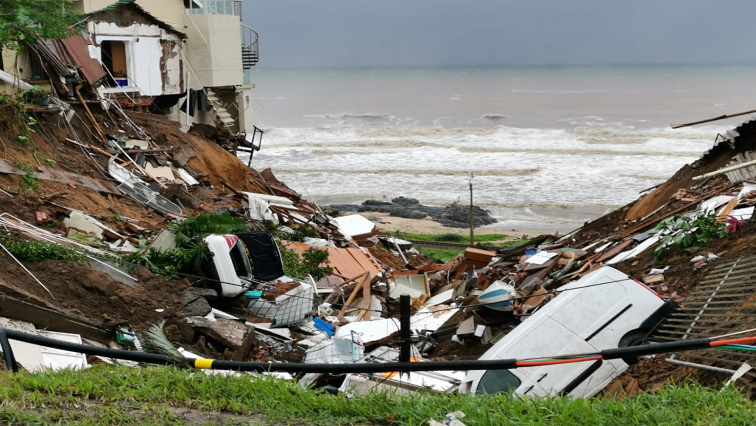Climate change affects people living in poor rural communities. The recent heavy hail storm in the eastern region of the Eastern Cape demolished more than 680 households, leaving 147 families homeless.
Schools, churches and community halls are also affected.
This has also caused shortage of food, water and electricity in many parts of the region.
21Nov: IMPACT-BASED Yellow L2 warning: Severe thunderstorms tht can result in damaging winds, hail & heavy downpours could cause localized flooding in susceptible settlement areas/roads/ low-lying areas & bridges in ECape (N&E), eastern prts of NCape, south-western prts FState
— SA Weather Service (@SAWeatherServic) November 21, 2020
Media Article (Part 1): MULTICELL CLUSTER STORM CAUSES HAVOC IN MTHATHA ON 17 NOVEMBER 2020 pic.twitter.com/jd8UJPw7HT
— SA Weather Service (@SAWeatherServic) November 20, 2020
Jumba Senior Secondary School was demolished by the storm and learners are stranded.
School Governing Body chairperson Siyanda Ntshongwana says, “The situation here in Jumba school is very critical, some learners do not attend due to the classes that are damaged and the teachers cannot coporate because of the mess outside, they are not safe, so we have decided that other learners must stay at home for the time being until we resolve the problem.”
Not far from the school, is the Morovian Church of Southern Africa residence which has been completely demolished by the storm. Church members are devastated.
Church elder, Lindelwa Magwentshu, says their priest is now homeless.
“When this storm came, it took away the roof, it was blown away by the wind so he slept there the whole night because all his belongings, the family belongings and the church belongings were there so he could not sleep away. He said he wanted to see everything in there or what is happening during the night because during the day people are there.”
Human Settlements, Water and Sanitation Minister, Lindiwe Sisulu believes the ever-changing weather conditions require the intervention of the department. She says drafting building plans that will stand harsh weather conditions could be a solution.
“Unfortunately, this is where our people live and they build their own houses and their houses were not built to withstand the kind of condition, and it gives us a new responsibility that even though they’ve built their houses, we have got to assist them to make sure that they resist this.”
Shortage of food, water and basic necessities continue to pose a threat to affected impoverished families.
Changes in weather patterns:






